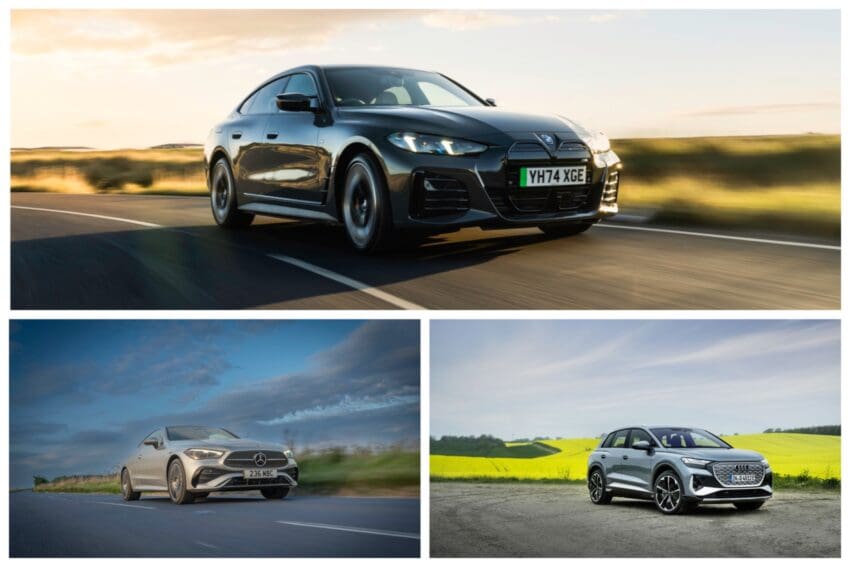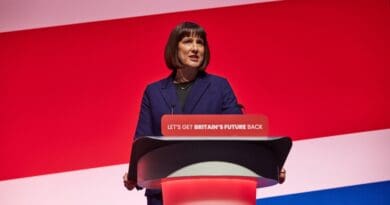
BMW, Audi, and Mercedes celebrate strong year of UK EV sales
Germany’s ‘Big Three’ luxury carmakers, BMW, Mercedes, and Audi, all recorded strong electric car sales in the United Kingdom in 2024.
BMW was the most popular of the three amongst UK buyers, with approximately 52,000 cars – 29.6% of its 172,240 total sales – coming from its all-electric ‘i’ brand.
The i4 proved to be its most popular model, with 12,953 units sold; a 45% year-on-year jump over 2023. The iX1 crossover was the second most popular BMW EV, achieving a total of 5,790 sales.
The Munich-based carmaker shifted 3,825 of its new-for-2024 i5 in both Saloon and Touring bodystyles. This all-electric 5 Series proved to be particularly popular with corporate and fleet customers.
Another BMW BEV launched in 2024, the iX2 crossover coupe, also performed strongly and recorded 2,819 registrations during its first 10 months on sale.
Overall, BMW secured 20.4% of the UK’s premium BEV market in 2024, and recorded an 18% year-on-year sales jump.
Audi sold a total of 122,431 cars in 2024, with BEVs comprising a recorded 20% for the Ingolstadt manufacturer. The Q4 e-tron SUV was the most popular model, accounting for 17,622 of the 24,216 all-electric Audis sold throughout the year.
The Q4 e-tron was also the UK’s second best-selling EV in 2024 behind the Tesla Model Y. The BMW i4 and Mercedes EQA were the fifth and sixth most popular choices amongst buyers seeking a mid-sized electric car.
Mercedes reported a 19% increase in EV sales, shifting 22,223 cars from its EQ range. The EQA proved the most popular option, with 11,617 units registered.
In 2025, each of the brands will expand its BEV portfolio. BMW will launch a line of purpose-built EVs under the ‘Neue Klasse’ brand, Audi will introduce its A6 and S6 e-tron, while Mercedes will introduce its new CLA.
Despite the positive sales figures, it wasn’t all good news for the ‘Big Three’. While BMW exceeded the UK government’s ZEV mandate by ensuring that 29.6% of all of its cars sold in 2024 were BEVs, Mercedes barely scraped the threshold on 22.6%. Audi, meanwhile, failed to make the cut on 17.5%.





